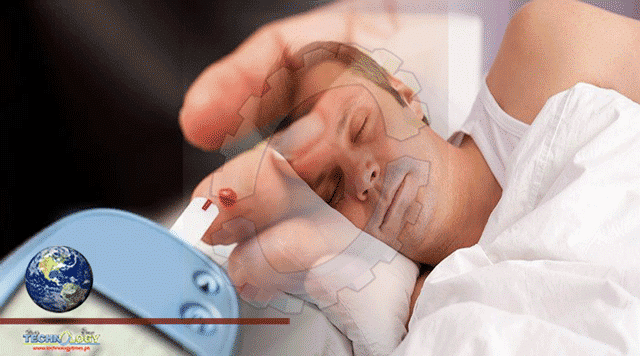Diabetes is characterised by dysregulation of blood sugar levels, resulting from an inability to respond to insulin, or a shortfall in the hormone. The eventual outcome of this is high glucose levels, which cause severe damage to the nerve endings if left unmanaged. One telltale sign that blood sugar levels are becoming chronically high may strike at night.

Diabetes is characterised by dysregulation of blood sugar levels, resulting from an inability to respond to insulin, or a shortfall in the hormone. The eventual outcome of this is high glucose levels, which cause severe damage to the nerve endings if left unmanaged. One telltale sign that blood sugar levels are becoming chronically high may strike at night.
Hormonal fluctuations can cause a boost in blood sugar levels, whether an individual is diabetic or not.
It is only once that chronic high blood sugar levels are left unaddressed that the condition starts to produce clear warning signs, however.
Because symptoms don’t usually appear before blood sugar levels are significantly elevated, many cases go amiss in the initial stages, when the condition is still reversible.
A headache at night could be an early warning sign that blood sugar levels are too high.
Because blood glucose levels surge while you’re asleep, the symptoms may be more apparent at this time.
The health website Diabetribe explains: “If your blood sugar is high at night you may experience symptoms of hyperglycemia.
“Hyperglycemia, or ‘high glucose’, is not defined by one specific glucose level.
“While many people aim to keep glucose levels below 180 mg/dl during the day, some people aim for the lower range of 120 or 140 mg/dl at night, when they are not eating.
“At night, symptoms of hyperglycaemia include poor sleep, waking up often to urinate or to drink water, headache, dry mouth, nausea.”
While blood levels may rise at night, it is worth mentioning that the increase will rarely be significant enough to cause damage to the body.
Other symptoms of high glucose
Excess glucose is infamous for its associations with nerve damage, but it can also cause the sweat glands to spot working correctly.
This could lead to insufficient sweating, or excessive sweating, depending on how the glands have been damaged.
When nerves stop functioning, individuals could also develop diabetic neuropathy, which may lead to amputation in severe cases.
Pins and needles, or a continuous tingling sensation in the hands and feet could be hinting at high glucose levels.
How to regulate high blood sugar levels
Drinking more water is important for glucose control because it allows the body to flush any excess sugar.
Carbohydrate intake should also be managed efficiently, as the body breaks downs down the nutrient into sugar.
Maggie Powers, PhD, president-elect of Health Care & Education at the American Diabetes Association, said: “Diabetes is when your glucose levels are higher than normal.
“It’s carbohydrate foods like bread, cereals, rice, pasta, fruits, milk and desserts that can cause this rise.”
Simple carbohydrates should therefore be avoided, while complex carbohydrates, which are rich in fibre, should be emphasised.
Exercise can also offer long-lasting effects, helping keep blood sugar within range for up to 48 hours.
Source: News Nation USA